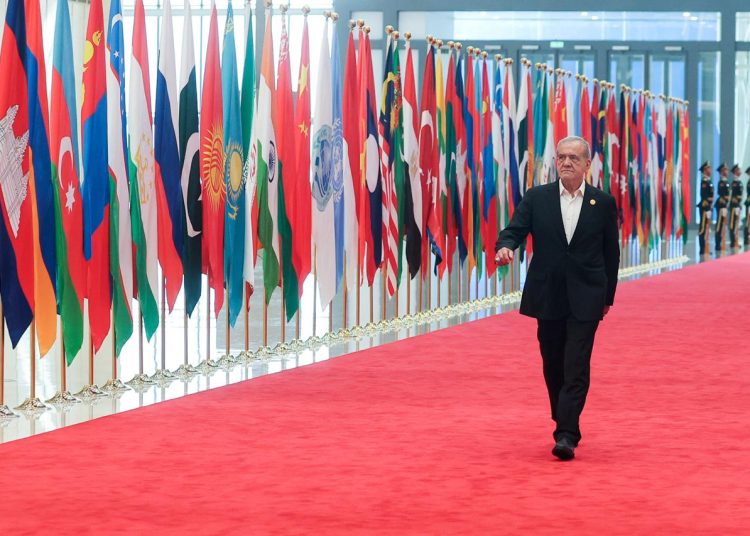The Shanghai Cooperation Organization (SCO) summit, held in Tianjin from August 31 to September 1, 2025, served as a significant platform for Iranian foreign policy, particularly in the context of recent regional conflicts and renewed international pressure. The event, which included representatives from over 20 member states and various international organizations, highlighted the SCO’s growing role as a forum for non-Western powers.
For Iran, the summit occurred at a critical time. The decision by Germany, the UK, and France (the E3) to activate the UN sanctions snapback mechanism aims to increase economic and diplomatic pressure on Tehran. Against this backdrop, statements of support from other major powers became noteworthy. The Joint Declaration of the summit issued condemnations of the recent US-Israel military action against Iran. This provided Tehran with public backing including from two permanent members and one non-permanent member of the UN Security Council at a challenging time.
The summit also marked a notable development in Iran-China relations. Iranian officials signaled a desire for more structured and long-term cooperation, moving beyond the crisis-oriented interactions.
During the summit, Iranian President Masoud Pezeshkian aligned with China’s stated goals for global governance reform, a move that reflects Iran’s broader policy of engaging with a multipolar international system. Tehran appears to view the SCO’s 10-year strategic framework, which aims to enhance cooperation in finance, defense, and infrastructure, as a vehicle for securing its interests within this evolving global structure.
Symbolic gestures also played a role. China’s invitation for Iran to its upcoming Victory Day military parade, an event from which several Western and regional states were excluded, was interpreted by observers as a signal of Beijing’s intent to strengthen its partnership with Tehran. Such actions reinforce Iran’s ongoing diplomatic pivot toward nations that advocate for a multipolar international order. This act of political theater aligns Iran with the historical victors over fascism, subtly drawing a parallel between past global struggles and its current confrontation with what it terms American unilateralism.
Furthermore, Iran used the summit to table proposals for changes to the international financial system and the establishment of new crisis-response mechanisms. These proposals aim to reduce reliance on the US dollar in international trade and promote the use of national currencies and regional financial frameworks. This aligns with Iran’s strategic objectives in the Indian Ocean and Central Asia, where it maintains influence in key areas like Afghanistan and the Caucasus.
A joint letter by Iran, Russia, and China rejecting the E3’s sanctions snapback as illegitimate was a key outcome. This coordinated statement represented a formal alignment of the three countries on this issue.
Iran’s engagement at the SCO summit indicates that the organization is becoming an increasingly important component of its foreign policy. The platform offers Tehran opportunities for multilateral trade and security cooperation outside of Western-led frameworks. The initiatives and statements from the summit suggest that Iran is pursuing a strategy of deepening its alliances with powers like China and Russia to navigate external pressures and position itself as a significant actor within the Global South.






